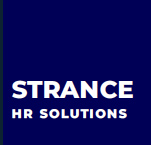Roles and Responsibilities
Organizational roles
To hire, motivate and retain the best technology talent in consultation with the Group CTO.
To plan and judiciously manage the technology development and maintenance expenditure in completely alignment with overall financial plan- Total cost of ownership optimization.
To actively collaborate in building the company into an agile but SOP driven organization
Product Development
To meticulously define the product technology road-map in continuous consultation with the
business and the Group CTO while retaining the broad principles of the existing framework- Open-source tech-stack, Cloud native computing, microservices
API/message-based architecture, continuously evolving security and logging protocols.
To be able to manage the Software development life-cycle using the Agile methodology in order to be able to dynamically meet the growing requirements of the business model using a hybrid of in-house and outsourced talent.
Support and maintenance
To set up and manage an SLA driven 24/7 operation to ensure a high availability, high performance architecture with strong protocols for cyber security and business continuity.
To ensure compliance with regular IT system audits including testing against security framework.
To set-up a continuous monitoring of the application and design a periodic reporting as per ITIL process.
To build a process for managing service transitions, change management, release and development deployment (including temporary patches and hotfixes).
To program manage ongoing systems integrations with the business partners
To develop and manage MIS and other decision support systems as required by the business
To manage and coordinate with internal and outsource development and infrastructure as advised by Group CTO.
Manage all compliances as per regulatory requirements.
Seek advise and approval from Group CTO to ensure smooth execution of system
Must have Key skills
Python, Shell-scripting, etc. Familiarity with Golang is a plus!
setting up & managing infrastructure using cloud providers (GCP, AWS)
in-depth knowledge of cloud-native tech such as Kubernetes, Terraform, Docker, etc.
operating, monitoring and logging infrastructure using technologies such as Prometheus, Grafana, ELK stack, etc.
micro services-based architecture and have a fair understanding of Security best-practices (Application and Infrastructure)
facilitated the setup of CI/CD pipelines for cloud environments using tools such as Jenkins, Gocd, Gitlab, etc.
Configuration management and Infra management using tools such as Ansible, Chef, Puppet
database systems/techniques – tuning, monitoring, scaling, backups and archival
